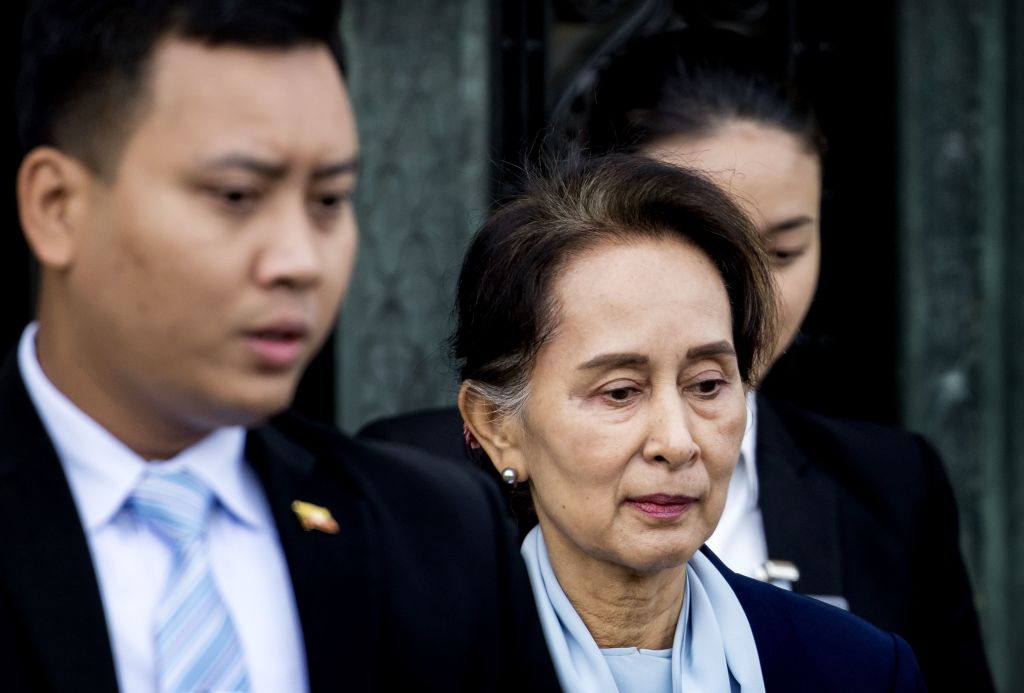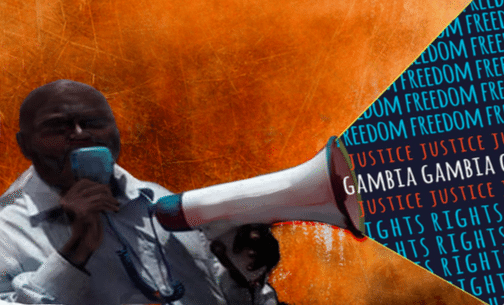The following information is based on the Amnesty International Report 2021/22. This report documented the human rights situation in 149 countries in 2021, as well as providing global and regional analysis. It presents Amnesty International’s concerns and calls for action to governments and others.
GAMBIA 2021
People were arbitrarily arrested in Sanyang, and protests continued to be restricted. The Access to Information bill was signed into law. The long-awaited report by the Truth, Reconciliation and Reparations Commission was submitted to the government. Fishmeal factories had a negative economic and environmental impact on local populations. Women and LGBTI people continued to face discrimination. The torture bill was still pending at the end of the year and death sentences continued to be handed down by courts.
Background
Gambia held a presidential election in December, which was won by Adama Barrow. The Truth, Reconciliation and Reparations Commission report made public in December recommended prosecution of former president Yahya Jammeh for crimes committed during his presidency.
Arbitrary arrests and detentions
On 15 March, violent protests erupted in Sanyang after a Senegalese national killed a local Gambian man. The police arrested at least 50 people over the course of the following seven days. Most were released without charge, and 22 were initially charged with criminal offences including arson, rioters demolishing buildings, unlawful assembly and conspiracy to commit felony. At the end of the year, 19 people still had charges pending against them, including 14 charged with conspiracy to commit misdemeanour, unlawful assembly and riot, and five charged with going armed in public, shop breaking, theft, arson, damage to property, conspiracy to commit arson, unlawful assembly and riot.
In May, the Attorney General dropped the charges pending against leaders of the Three Years Jotna protest which the police violently repressed in 2020. The protest called for President Adama Barrow to honour his promise to step down after three years in power.
Freedom of assembly
Section 5 of the Public Order Act requiring permission to protest remained in force. The provision was used to deny permission to organize protests. In June, the inspector general of police denied permission to the organization Gambia For Five Years and Peace Building to protest against a decision by the electoral commission to allow the mayor of Banjul to issue attestations for the purposes of voter registration.
Freedom of expression and right to information
In July, parliament enacted the Access to Information bill, which the president signed into law on 25 August. The bill was the result of a collaborative effort between civil society and the government, and allowed the public and journalists to access information from public institutions.
At the end of the year, bills modifying provisions of the Criminal Code and the Information and Communications Act which restricted the right to freedom of expression were still pending. As a result, sedition against the president and administration of justice was still criminalized, with stiff penalties including imprisonment. Investigating authorities and the Public Utilities Regulatory Authority retained the power to intercept communications for surveillance purposes without effective judicial oversight.
Right to truth, justice and reparation
The Truth, Reconciliation and Reparations Commission (TRRC), which was launched in October 2018 to look into alleged human rights violations during the 22-year rule of former president Yahya Jammeh, held its last public session on 28 May. The TRRC submitted its final report to the government on 25 November. On 24 December, the minister of justice made the report public.
Economic, social and cultural rights
Local populations complained about the environmental and economic impacts of fishmeal factories in coastal regions, including in Gunjur and Sanyang.
Fishmeal factories led to overfishing, and the government remained unable to control illegal fishing by foreign boats due to limited sea surveillance capacity. The resulting scarcity of fish led to a rise in fish prices. In June, Greenpeace published a report highlighting the impact of fishmeal and the fish oil industry in the region. The people most affected were women selling smoked fish, artisanal fishermen and the people who depended on fish for their protein intake. The report concluded that the practice threatened food security in the region.
Discrimination
Women’s rights
Violence against women persisted. In July, the minister of women, children and social welfare stated that the Network against Gender-based Violence had recorded 251 cases of gender-based violence, 240 of these against women, over the last 12 months.
Women remained under-represented in public offices. According to UN Women, as of February 2021 only 8.6% of the parliament’s seats were held by women.
LGBTI people’s rights
LGBTI people still lived under the threat of oppressive laws, which created an unsafe environment. Section 144 of the Criminal Code provided for a 14-year prison sentence for anyone who has “carnal knowledge of any person against the order of nature […] or permits any person to have carnal knowledge of him or her against the natural order.” Section 147 criminalized an “act of gross indecency” between two people of the same sex with five years in prison. Section 144A created the crime of “aggravated homosexuality” for “serial offenders” and those living with HIV, punishable by life imprisonment.
Torture and other ill-treatment
The Prevention and Prohibition of Torture bill was still pending at the National Assembly. As such, at the end of the year there were no national laws defining torture and establishing it as an offence.
Death penalty
Despite the establishment of an official moratorium on executions, and the country’s accession to the Second Optional Protocol to the ICCPR aiming at the abolition of the death penalty, courts continued to hand down death sentences. On 14 July, the High Court in Banjul found Yankuba Touray, former junta member and ally of former president Yahya Jammeh, guilty of the murder of Ousman Koro Ceesay, former minister of finance. He was sentenced to death by hanging. Two other men – one in July and one in October – were sentenced to death for murder.




